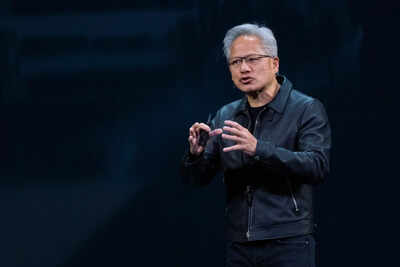Nvidia CEO Warns US Risks Losing AI Race Over China Restrictions
Nvidia CEO Jensen Huang has delivered a stark warning to US policymakers, stating America cannot win the AI battle if China fully excludes Nvidia from its vast developer ecosystem. During his Washington visit, Huang revealed China has effectively shut down Nvidia’s operations and urged reconsideration of restrictions that could cede half the world’s AI talent to domestic rivals.
Key Takeaways
- Nvidia’s market share in China dropped from 95% to zero due to export controls
- Company reported $500 billion in advanced chip bookings despite China blockade
- Huang warns isolating US from China’s developers “hurts us more” long-term
China’s Clear Message to Nvidia
“They’ve made it very clear that they don’t want Nvidia to be there right now,” Huang stated at the GTC event news conference. He revealed Nvidia hasn’t even applied for US export licenses for latest chips due to Beijing’s hostile stance. “I hope that will change because China is a very important market,” he added, arguing isolation policies could squander Nvidia’s role in global AI infrastructure.
Market Share Collapse
Speaking at a Citadel Securities event earlier this month, Huang confirmed Nvidia is completely barred from selling high-performance AI chips (A100, H100, H200) to Chinese companies since 2022 restrictions began. He witnessed Nvidia’s dominance in China’s advanced chip market vanish, with market share plummeting from 95% to zero due to stringent US export controls.
US Government Partnerships Expand
Despite the China blockade, Nvidia announced seven new supercomputers for the US Department of Energy and reported $500 billion in advanced chip bookings. The largest system, built with Oracle using 100,000 Blackwell chips, will support nuclear weapons maintenance, fusion energy research, and other national priorities.
Praise for Trump Policies
Huang credited Trump’s “America First” approach with revitalizing US manufacturing, highlighting Nvidia’s chip production in Arizona via TSMC, server assembly in Texas, and networking gear in California. “Putting the weight of the nation behind pro-energy growth completely changed the game,” he said, directly thanking the former president.
Balancing Act
Analyst Blake Anderson estimated one supercomputer, “Solstice,” could involve $3-4 billion in Nvidia chips alone. Huang balanced his praise for Trump with continued pleas for market access, noting that barring Nvidia from ~$50 billion in annual Chinese sales hampers US R&D funding, even as Chinese developers reportedly prefer Nvidia over mandated Huawei alternatives.
Global Expansion Strategy
To offset China losses, Huang unveiled a $1 billion investment for 2.9% stake in Nokia and the “Arc” product line to boost 6G base station efficiency for millions of global sites, signaling Nvidia’s diversified growth strategy amid ongoing geopolitical tensions.




